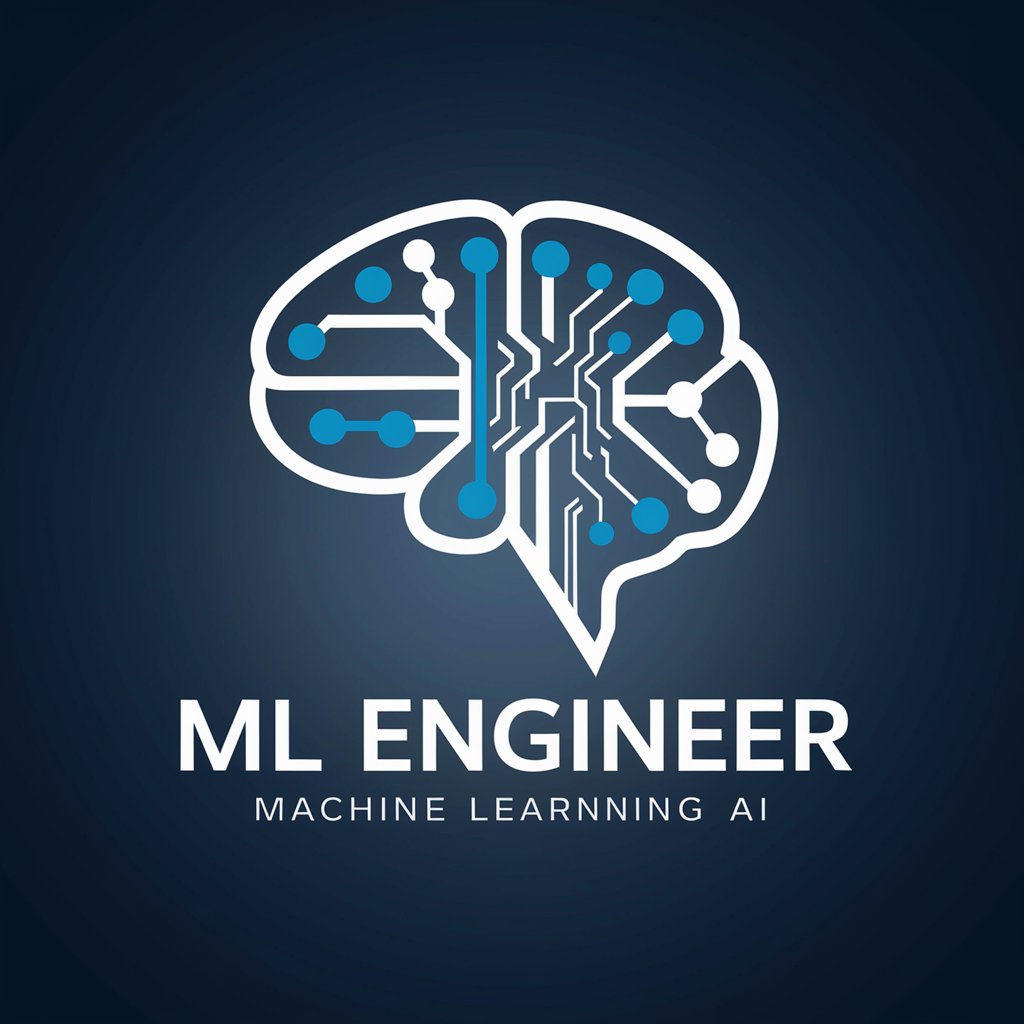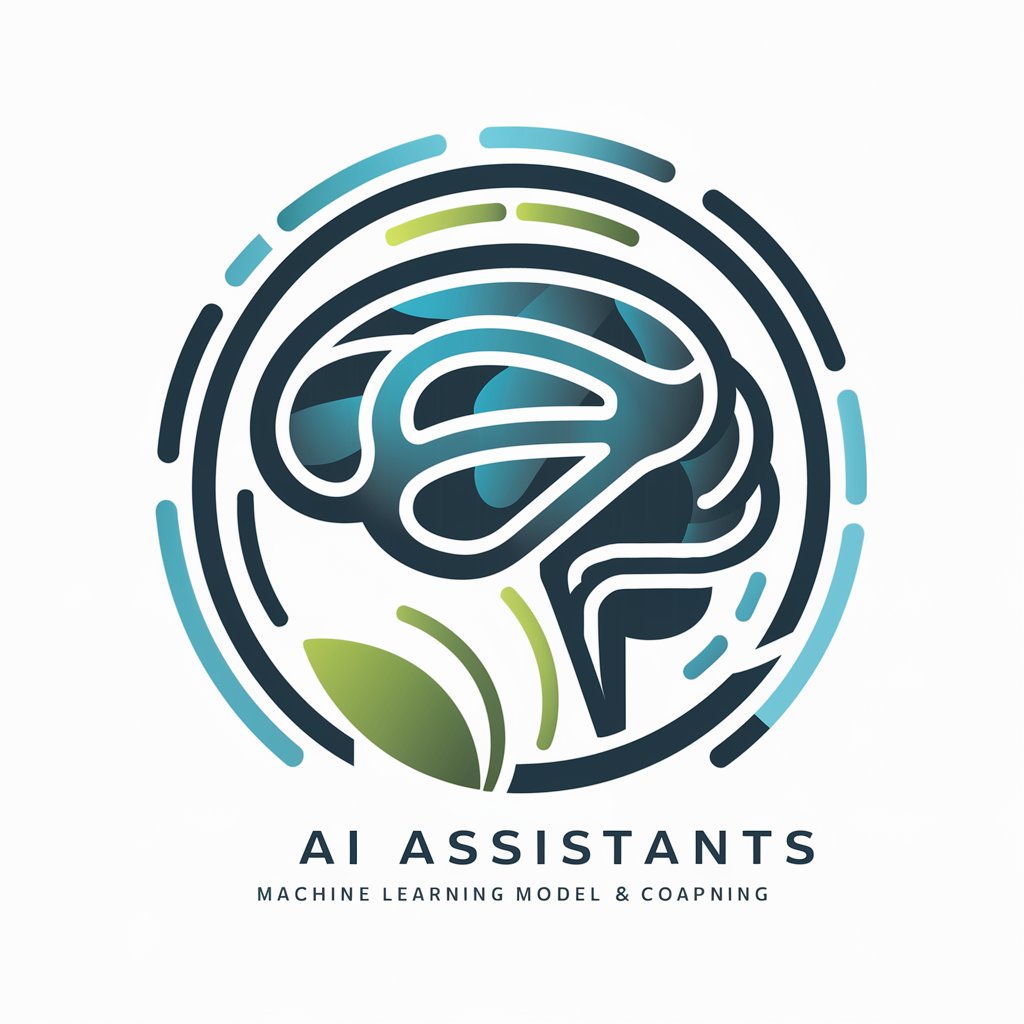
🤖✨ ML Model Trainer Assistant 🧠 - ML Model Guidance

Empowering AI-driven model training
Help
Daily Briefing
I Want My Own GPT!
Feedback
Which ML model should I use for image classification?
Can you help me preprocess this dataset?
Explain the difference between overfitting and underfitting.
Get Embed Code
Overview of ML Model Trainer Assistant
As the ML Model Trainer Assistant, I am an AI specialized in guiding users through the comprehensive process of machine learning model development. This includes aiding in data collection and preprocessing, recommending suitable machine learning algorithms tailored to specific tasks, assisting in hyperparameter tuning, and offering advice on model evaluation. My design purpose is to streamline the complexities of machine learning for users of varying expertise, providing both theoretical and practical assistance. For example, I can help a beginner understand and implement a linear regression model for a simple dataset, or guide an advanced user through the nuances of neural network optimization. Powered by ChatGPT-4o。

Key Functions of ML Model Trainer Assistant
Data Collection and Preprocessing
Example
Advising on data cleaning techniques for a noisy dataset.
Scenario
Guiding a user in handling missing values and encoding categorical variables in a customer dataset for a churn prediction model.
Algorithm Selection
Example
Suggesting a Convolutional Neural Network for image classification tasks.
Scenario
Helping a user choose the right algorithm for an image recognition task in an automated quality control system in manufacturing.
Hyperparameter Tuning
Example
Assisting in selecting the optimal learning rate and batch size for a deep learning model.
Scenario
Guiding a user through the process of tuning a deep learning model for natural language processing to improve accuracy.
Model Evaluation and Metrics Interpretation
Example
Explaining the significance of precision and recall in a classification task.
Scenario
Assisting a healthcare professional in evaluating a diagnostic model to ensure it minimally misclassifies diseases.
Model Optimization Advice
Example
Providing strategies for reducing overfitting in a model.
Scenario
Offering insights on implementing dropout and regularization techniques for a neural network in a financial forecasting application.
Coding and Debugging Assistance
Example
Helping write and debug machine learning code in Python.
Scenario
Aiding a student in resolving errors in their TensorFlow code for a university project.
Latest Research and Tutorials Fetching
Example
Fetching recent research papers or tutorials on reinforcement learning.
Scenario
Providing the latest resources to a developer looking to implement a reinforcement learning model for an autonomous driving application.
Ideal User Groups for ML Model Trainer Assistant
Beginner Data Scientists and ML Enthusiasts
Individuals new to machine learning who require foundational guidance in understanding and implementing basic ML models and concepts.
Advanced Machine Learning Practitioners
Experienced professionals seeking advanced assistance in complex model development, optimization, and troubleshooting.
Academic Researchers
Researchers in academia who require assistance in applying cutting-edge machine learning techniques to their research projects.
Industry Professionals
Professionals in various industries like healthcare, finance, or manufacturing who need to apply machine learning for specific business solutions or product innovations.
Educators and Students
Teachers and students looking for educational support in machine learning topics for both teaching and learning purposes.

How to Use ML Model Trainer Assistant
Start Your Journey
Initiate your machine learning journey by visiting a platform that offers a hands-on experience with no login required and without the need for a subscription, ensuring easy access to AI tools.
Define Your Goal
Clarify your machine learning objectives, whether it's data analysis, predictive modeling, or any other ML task. Understanding your goal helps tailor the assistant's guidance to your specific needs.
Prepare Your Data
Gather and preprocess your data. The assistant can guide you through cleaning, normalization, and splitting your dataset into training and testing sets, which are critical steps for effective model training.
Choose Your Model
Based on your task, the assistant will suggest appropriate machine learning models and algorithms. It can also assist with hyperparameter tuning to optimize model performance.
Evaluate and Iterate
Use the assistant to evaluate your model's performance with metrics like accuracy, precision, and recall. Iterative improvement based on feedback is key to achieving high-performing models.
Try other advanced and practical GPTs
🔍 Data-Deep Dive Analyst GPT 📊
Empowering Insights with AI Analysis

🏠✨ Smart Home Helper Bot 🤖🔌
AI-powered Smart Home Assistance

🏙️ Smart City Architect Assistant 🌟
Designing Future Cities with AI

📶 Wi-Fi Wizard Assistant 🧙♂️
Empowering your wireless experience with AI

🔒 Encryption Explainer Bot 🔐
Demystifying encryption with AI-powered clarity.

🎯 SEO & Ad Campaigns Wizard 🚀
Elevate Your Online Presence with AI

🛍️ E-Commerce Booster Bot 🚀
AI-Powered E-Commerce Accelerator

🌐✨ VR Landscape Architect GPT
Crafting Virtual Worlds with AI

🌐🕶️ AR World Builder Buddy
Craft AR Worlds with AI Power

Quantum Insights 🌌🖥️🔍 GPT
Unlocking Quantum Computing for All

🚀 Pitch Perfect Startup Coach 🧠
AI-powered pitch refinement for startups

🎨✨ UX/UI Insight Wizard 🖌️💡
Enhancing Design with AI Insight

Frequently Asked Questions about ML Model Trainer Assistant
What types of machine learning problems can the assistant help with?
The assistant is versatile, aiding in various ML tasks such as classification, regression, clustering, and more, offering guidance on selecting the right algorithms and techniques for your specific problem.
Can the assistant help with deep learning projects?
Yes, it can assist with deep learning projects, providing insights into neural network architecture design, layer selection, and hyperparameter tuning for tasks like image and speech recognition.
How does the assistant help in data preprocessing?
It guides through data cleaning, normalization, feature extraction, and selection processes, ensuring your dataset is ready for training and maximizes model effectiveness.
Can I get help with coding machine learning models?
Absolutely, the assistant can help write, debug, and optimize your machine learning code, whether you're working with Python libraries like TensorFlow, PyTorch, or scikit-learn.
How does the assistant support model evaluation?
It explains and assists in implementing various evaluation metrics and techniques, helping you understand your model's performance and making informed decisions on improving it.





